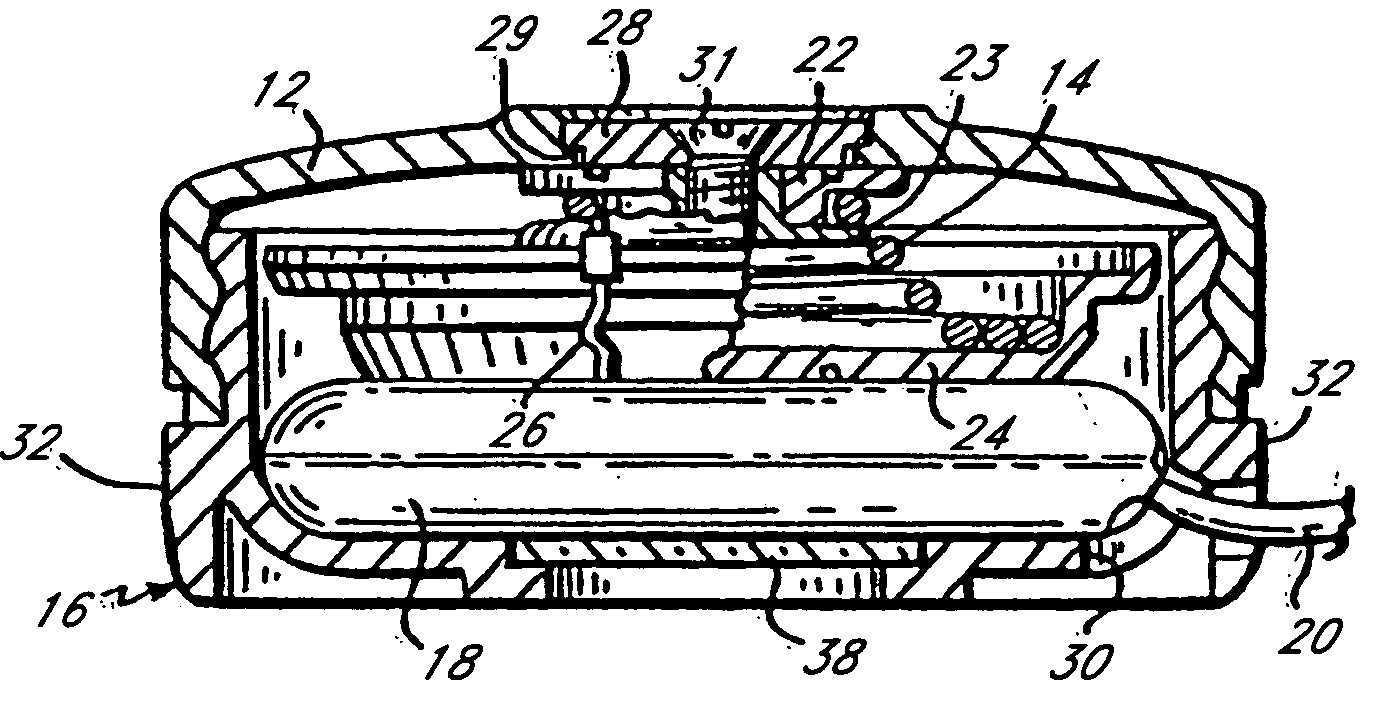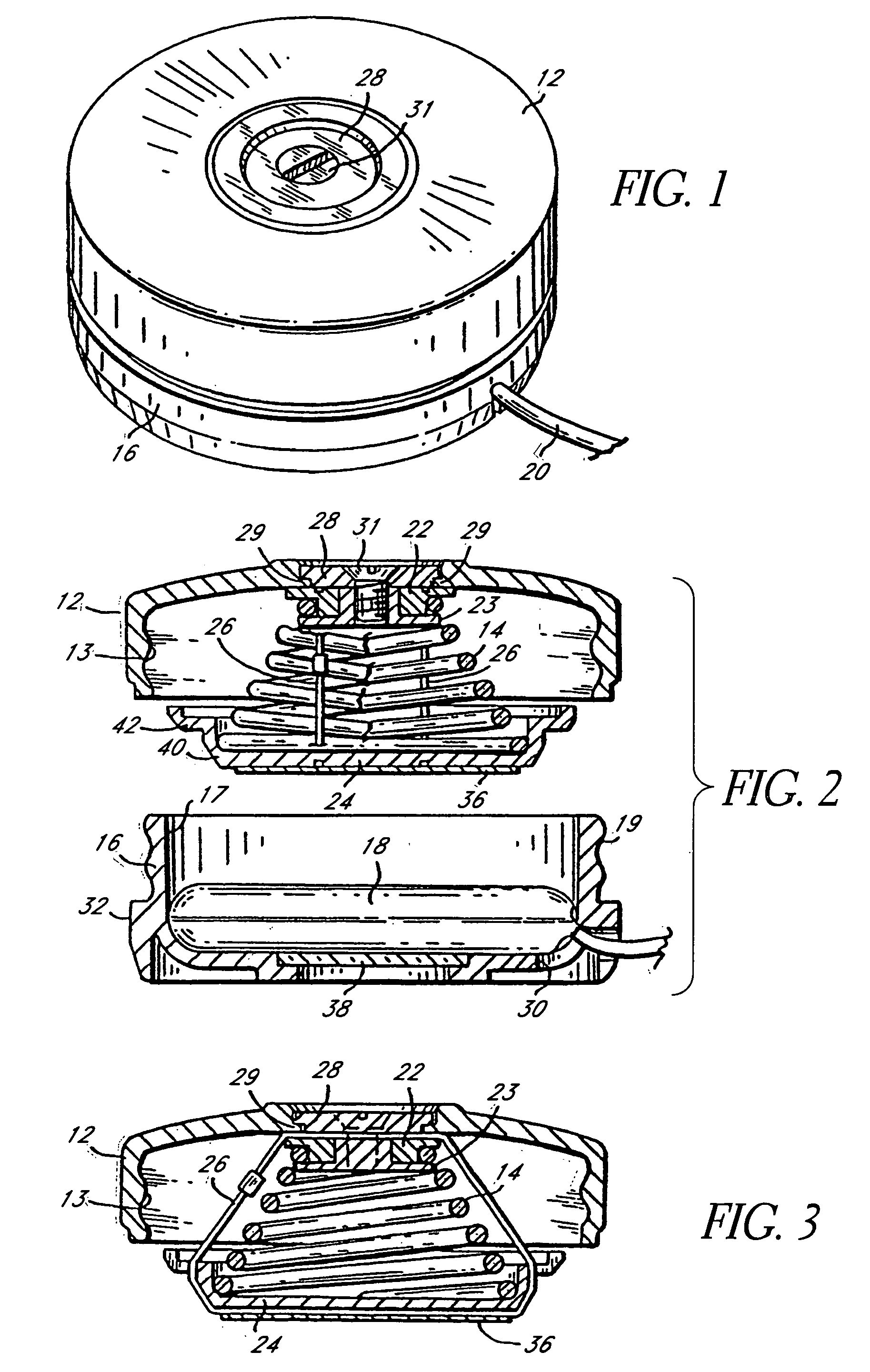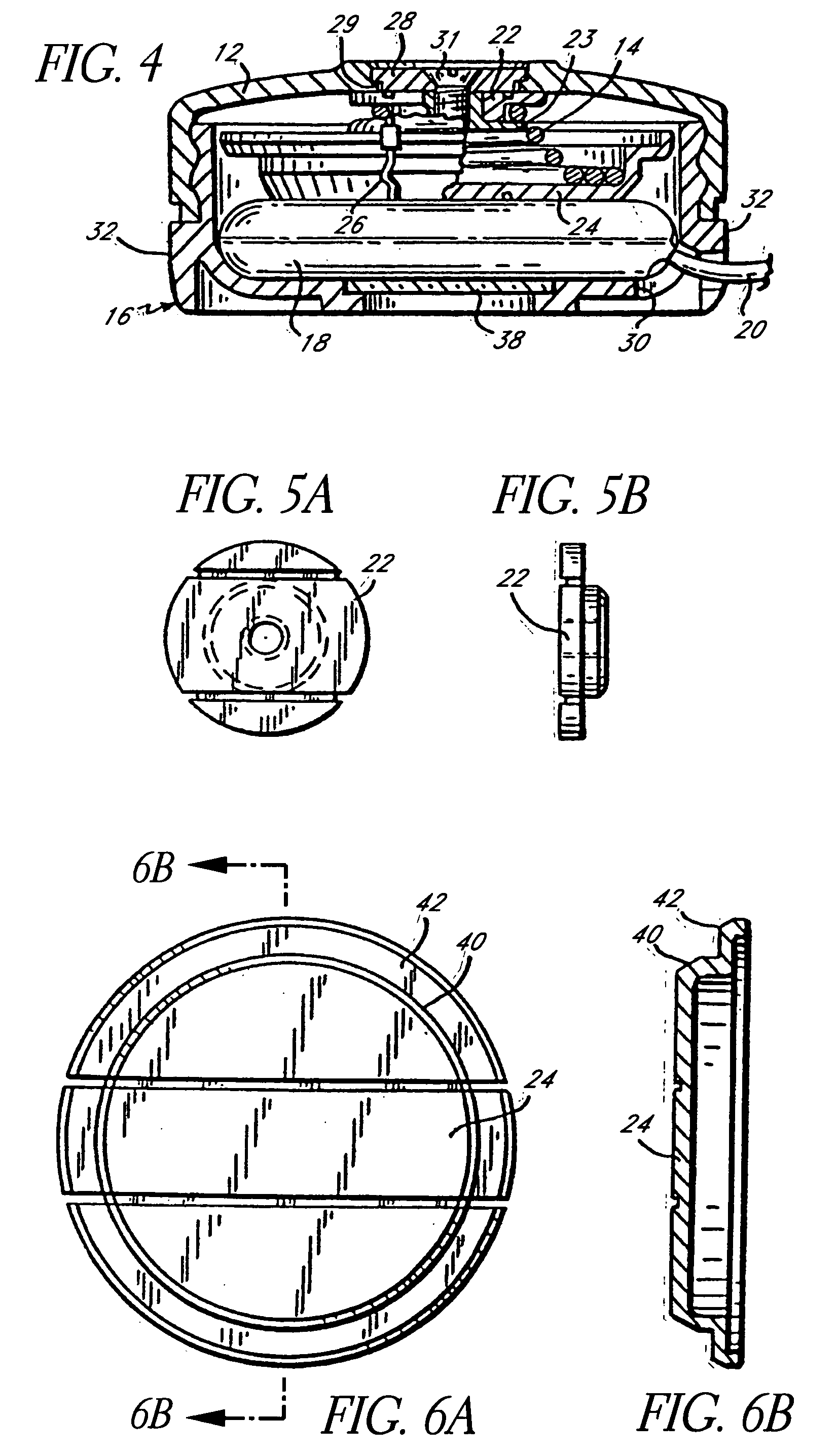Platen pump
a platen pump and pump body technology, applied in the direction of tubular containers, containers, medical devices, etc., can solve the problems of unsteady flow, affecting the utility of such pumps, and bulky siz
- Summary
- Abstract
- Description
- Claims
- Application Information
AI Technical Summary
Benefits of technology
Problems solved by technology
Method used
Image
Examples
experiment 1
Constructing the Pump
[0257] A planet was constructed in accordance with the embodiment illustrated in FIGS. 52-55, having springs 412 and 412′ comprised of music wire having a wire diameter of approximately 0.085 inch. Springs 412 and 412′ had an outside diameter of about 0.5 inches, a spring constant of approximately 111 lbs. per inch, and were approximately 1.7 inches long in the uncompressed state and approximately 0.9 inch long in the fully compressed state, as shown in FIG. 54. The sum of the axial travel of springs 412 and 412′ was approximately 0.7 inch between the compressed state as shown in FIG. 53 at the beginning of the dispensation cycle and the state shown in FIG. 54 at the end of the dispensation cycle. The springs were preloaded to about 35 lbs. on each side, and were measured to generate a total spring force of about 160 lbs. Blocks 420 and 420′ were constructed from Delrin, available from DuPont. The length of each of the four link arms was about 0.8 inches from p...
experiment 2
Testing the Platen Pump
[0258] A 50 cc medication bag 406 was inserted in the platen pump of Experiment 1 and the output fluid pressure from the medication bag 406 was measured as the volume in the medication bag 406 decreased over the dispensation cycle. Table I below illustrates that data accumulated from this experiment.
TABLE IVolume Expelled fromOutput FluidMedication Bag (cc)Pressure (psi)05.0.55.015.025.035.045.055.0105.0155.05205.1255.1305.1355.1404.9542.54.6454.45464.25474.147.59.0483.948.53.5492.4500
[0259] The data obtained from the above experiment is reproduced in FIG. 56, which plots the volume of medication dispelled in cubic centimeters versus the output pressure in lbs / sq. in. The percent change in output pressure versus the volume expelled is illustrated in FIG. 57. FIG. 57 illustrates the remarkably steady output pressure of the medication contained in medication bag 406 during the dispensation cycle produced by the platen pump 400.
experiment 3
100 cc Volume Test
[0260] In Experiment 3, the 50 cc medication bag 406 was replaced with a 100 cc medication bag. The experiment conducted in Experiment 2 above was repeated and the following data was recorded.
TABLE IIVolume Expelled fromOutput FluidMedication Bag (cc)Pressure (psi)05.154.6104.7204.75304.75404.6504.55604.4704.2803.95903.6953.4992.91000
[0261]FIG. 58 illustrates the output pressure over the dispensation cycle. FIG. 59 illustrates the percent change in pressure over the dispensation cycle.
[0262] Increasing the volume of medication in the medication bag 406 from 50 cc to 100 cc remarkably did not dramatically affect the change in pressure over the dispensation cycle on the medication bag 406.
[0263] Referring to FIGS. 61-65, a fluid container 500 is provided which may be readily used with any of the previously disclosed embodiments of the platen pump. Preferably, the fluid container 500 consists of a collapsible medication reservoir or bag 510 in fluid communication...
PUM
 Login to View More
Login to View More Abstract
Description
Claims
Application Information
 Login to View More
Login to View More - R&D
- Intellectual Property
- Life Sciences
- Materials
- Tech Scout
- Unparalleled Data Quality
- Higher Quality Content
- 60% Fewer Hallucinations
Browse by: Latest US Patents, China's latest patents, Technical Efficacy Thesaurus, Application Domain, Technology Topic, Popular Technical Reports.
© 2025 PatSnap. All rights reserved.Legal|Privacy policy|Modern Slavery Act Transparency Statement|Sitemap|About US| Contact US: help@patsnap.com



